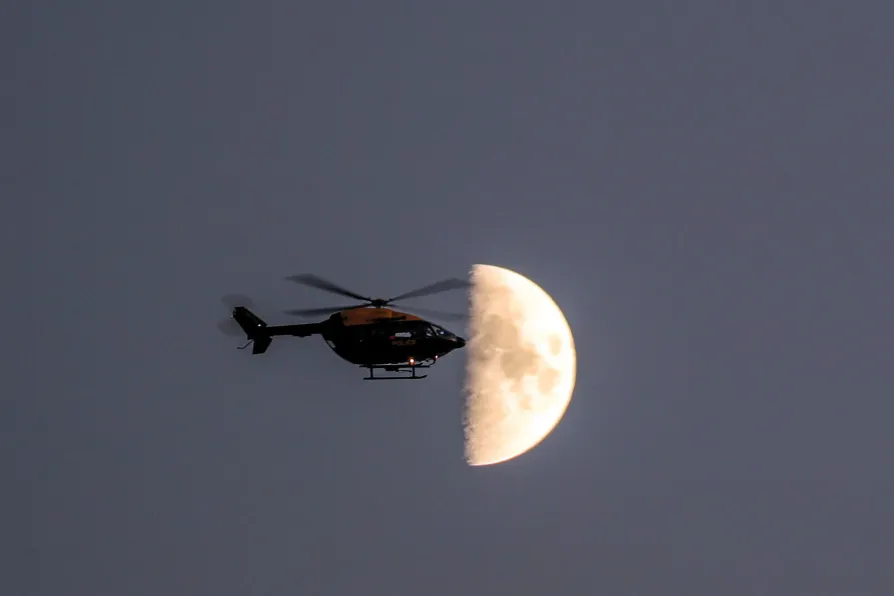Trump’s escalation against Venezuela is about more than oil, it is about regaining control over the ‘natural’ zone of influence of the United States at a moment where its hegemony is slipping, argues VIJAY PRASHAD

 OLD WORLD ORDER: A police helicopter flies near the moon during an annual Nato heads of government summit
OLD WORLD ORDER: A police helicopter flies near the moon during an annual Nato heads of government summit
WORLD WAR II ended 80 years ago, in 1945. The war lasted six years, from 1939 to 1945, though some would argue that it really began in 1937 with the Japanese invasion of China. It is indisputable, however, that the war was the deadliest in history.
Tens of millions of people died (estimates as to the number of military and civilian fatalities vary widely), of whom six million were Jews killed in the Holocaust. There was destruction of vast territories in Europe and Asia, with the Soviet Union suffering the greatest losses: around 27 million people died and over 7,000 villages and cities destroyed. And in Japan over 200,000 people — mostly civilians — died in the atomic bombings of Hiroshima and Nagasaki.
By contrast, other than the attack on Pearl Harbour (a military base), the United States suffered virtually no physical damage, fewer than 500,000 military deaths and only several thousand civilian casualties, mainly of US citizens living abroad.

ROGER McKENZIE argues that the BRI represents a choice between treating humans as commodities or as equals — an essential project when, aside from China’s efforts, hundreds of millions worldwide are trapped in poverty

The colonial mindset behind the governance of the UN is the reason for its inertia when it comes to conflict resolution, argues ROGER McKENZIE – but can China’s Global Governance Initiative point in a new direction of global equality?

JENNY CLEGG reports from a Chinese peace conference bringing together defence ministers, US think tanks and global South leaders, where speakers warned that the erosion of multilateralism risks regional hotspots exploding into wider war

RON JACOBS salutes a magnificent narrative that demonstrates how the war replaced European colonialism with US imperialism and Soviet power










